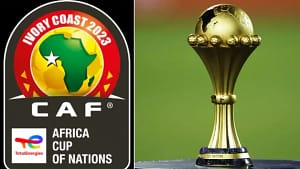
The Africa Cup of Nations (AFCON) is the premier international men’s association football competition in Africa. It was first held in 1957 and is organized by the Confederation of African Football (CAF). The tournament has grown significantly over the years, both in terms of the number of participating teams and its overall stature in the global football community. Here’s a brief history of the AFCON:
Early Years (1957-1965)
- 1957: The inaugural tournament was held in Sudan and included only three teams: Egypt, Sudan, and Ethiopia. Egypt won the first championship.
- 1959-1965: The tournament was held biennially. Egypt dominated the early years, winning the title in 1959 and 1962. Ghana emerged as champions in 1963 and 1965.
Expansion and Growth (1968-1978)
- 1968: The tournament expanded to include eight teams. The Democratic Republic of Congo (then known as Congo-Kinshasa) won their first title.
- 1970s: The decade saw the emergence of new champions like Sudan (1970) and Morocco (1976). The tournament also began to move around the continent, being hosted by different countries.
Period of Dominance (1980-1990)
- 1980s: This period saw the rise of West African dominance, with Nigeria (1980) and Ghana (1982) winning titles. Cameroon also emerged as a strong team, winning their first AFCON in 1984 and again in 1988.
The 1990s: Rise of North African Teams
- 1990: Algeria won its first AFCON on home soil.
- 1992: The tournament expanded to 12 teams. Ivory Coast won their first title in this year.
- 1994-1998: Nigeria won their second title in 1994, South Africa won in 1996, and Egypt started to reassert their dominance with a win in 1998.
New Millennium Challenges and Triumphs (2000-Present)
- 2000s: Cameroon won back-to-back titles in 2000 and 2002. Egypt achieved a historic treble, winning in 2006, 2008, and 2010.
- 2010s: Zambia’s 2012 victory was a significant upset. Nigeria won in 2013, and Ivory Coast claimed their second title in 2015. Cameroon and Algeria won in 2017 and 2019, respectively.
- 2021: The tournament was postponed to 2022 due to the COVID-19 pandemic. Algeria was the defending champion, having won the 2019 edition.
Expansion and Format
- 2017: CAF announced the tournament’s expansion to 24 teams, starting from the 2019 edition.
- Timing Change: The tournament was traditionally held in January/February but was moved to June/July starting in 2019, although this change has been subject to revisions due to climate concerns in host countries.
Before Ivory Coast won the Africa Cup of Nations (AFCON) in 2015, Nigeria was the defending champion, having won the tournament in 2013. Nigeria’s victory in 2013 marked their third AFCON title, with previous wins in 1980 and 1994. The 2013 tournament was held in South Africa, and Nigeria secured their title by defeating Burkina Faso 1-0 in the final.
Senegal won the Africa Cup of Nations (AFCON) in 2021 (held in 2022 due to the COVID-19 pandemic). They won the tournament by defeating Egypt in the final through a penalty shootout, securing their first-ever AFCON title. The tournament showcased Senegal’s strong performance throughout, culminating in their historic victory in the final match.
AFCON has become a showcase for African football talent, contributing significantly to the global football landscape. It has been a platform for players from the continent to showcase their skills on an international stage, often leading to successful careers in Europe and beyond. The tournament’s history reflects the passion for football in Africa and its evolution into a globally respected competition.
[…] Read Also: (AFCON), Africa Cup of Nations : The Beginning […]